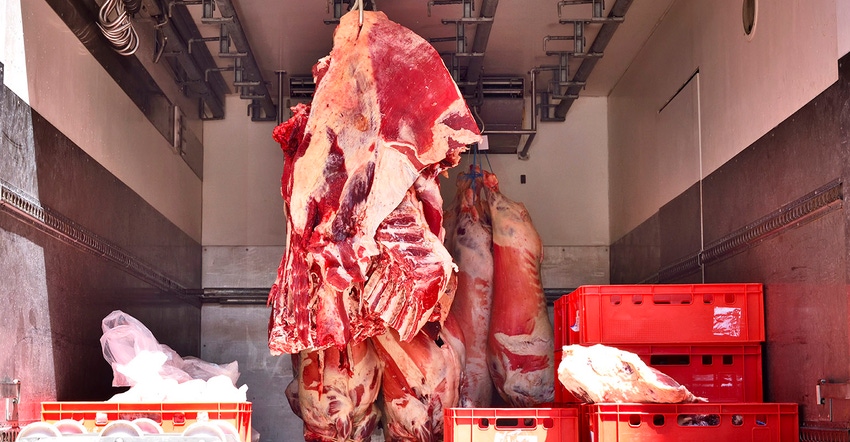July 15, 2019

A bipartisan group of senators have introduced the Protecting America’s Food & Agriculture Act of 2019 to hire additional inspectors to prevent the intentional or unintentional entry of harmful plants, food, animals and goods into the United States.
The Protecting America’s Food & Agriculture Act of 2019 authorizes the annual hiring of 240 agricultural specialists a year until the workforce shortage is filled, and 200 agricultural technicians a year to carry out administrative and support functions. The bill also authorizes the training and assignment of 20 new canine teams a year, which have proven valuable in detecting illicit fruits, vegetables and animal products that may have otherwise been missed in initial inspections. Finally, the bill authorizes supplemental appropriations each year to pay for the activities of the agriculture specialists, technicians and canine teams.
“Every day, millions of pounds of produce, meat and other agricultural goods enter the United States through our nation’s ports of entry,” said Sen. Gary Peters, D-Michigan, ranking member of the Senate Homeland Security and Governmental Affairs Committee. “Agricultural inspectors are responsible for ensuring these goods move efficiently across our borders while safeguarding against harmful pests, diseases and even potential bioterrorism attacks.”
“Devastating diseases and pests are just one plane or boat ride away from causing havoc for American agriculture. Thus, diligence by the Customs and Border Patrol Agriculture Specialists is vital to a safe and affordable food supply," said Sen. Pat Roberts, R-Kansas, chairman of the Senate Committee on Agriculture, Nutrition and Forestry.
“We rely on agricultural inspectors at our borders to protect the safety of our food supply,” said Sen. Debbie Stabenow, D-Michigan, ranking member of the Senate Committee on Agriculture, Nutrition and Forestry. “It’s critical that we address the shortage of agriculture specialists and hire qualified staff to safeguard our food and farms.”
“Hundreds of billions of dollars in goods pass through Texas’ ports of entry each year,” said Sen. Cornyn, R-Texas. “Ensuring the safety and integrity of goods and products coming across our border is a priority.”
The USDA works with U.S. Customs and Border Protection to conduct inspections of foreign passengers, commercial vessels, trucks, aircraft and railcars at U.S. ports of entry. On a typical day, those inspectors process more than 1 million passengers and 78,000 truck, rail and sea containers carrying goods worth approximately $7.2 billion. In March, agricultural inspectors and their canine teams seized nearly 1 million pounds of illegal pork products smuggled from China, which has tested positive for African swine fever. According to CBP estimates, there is a shortage of nearly 700 inspectors across the country.
The legislation is supported by a broad coalition of groups including the U.S. Chamber of Commerce, American Farm Bureau Federation, National Treasury Employees Union, Border Trade Alliance, National Association of State Departments of Agriculture, National Pork Producers, Michigan Farm Bureau, Michigan Agri-Business Association and the Michigan Pork Producers.
Here's what supporters have to say about the legislation.
“This bipartisan legislation would help fill a critical gap at our country’s ports of entry. agriculture specialists, technicians and canine teams root out, identify and stop invasive pests and other dangers to our nation’s farms and green spaces,” said Tony Reardon, National Treasury Employees Union president.
“Invasive species have been estimated to cost the US economy more than $120 billion annually, with more than half of that amount representing damage to American agriculture,” said Dr. Barb Glenn, CEO of the National Association of State Departments of Agriculture.
“Preventing the spread of African swine fever and other foreign animal diseases to the United States is our top priority,” said David Herring, National Pork Producers Council president. “This essential legislation will help address the current inspection shortfall, reduce the risk of ASF and other foreign animal diseases, and protect the food supply for U.S. consumers.”
“Invasive species like spotted wing drosophila and the brown marmorated stink bug are just two examples of non-native pests that have created havoc for Michigan farmers over the last few years,” said John Kran, National Legislative Counsel for the Michigan Farm Bureau. “This bill will expand and enhance border inspections and provide farmers with another level of protection from foreign pests.”
Source: Senate Committee on Agriculture, Nutrition and Forestry, which is solely responsible for the information provided and is wholly owned by the source. Informa Business Media and all its subsidiaries are not responsible for any of the content contained in this information asset.
You May Also Like




